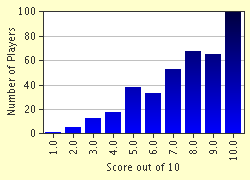Quiz Answer Key and Fun Facts
1. What is the person responsible for the kashruth of a restaurant or of a food plant called?
2. What is the meaning of the term "parve"?
3. How must eggs be handled in a kosher kitchen?
4. What is required for meat from a mammal to be considered kosher?
5. What should an airline passenger do if he requires kosher food during his flight?
6. Separation of meat and milk is a cardinal rule in kashruth. What does this involve?
7. On all other nights Ashkenazim and Sepharadim can eat the same foods. But on Passover, until the rules were changed in 2016, there was a difference! What was it?
8. A non-Jewish friend calls you for advice. He is invited to dinner at a kosher home outside of Israel and would like to bring something, but finds the rules of Kashruth confusing. What would be the easiest, simplest thing for him to bring?
9. You are planning a trip out of town. How will you manage to find kosher meals where you are visiting?
10. What is required for fish to be considered kosher?
Source: Author
janetgool
This quiz was reviewed by FunTrivia editor
LeoDaVinci before going online.
Any errors found in FunTrivia content are routinely corrected through our feedback system.

